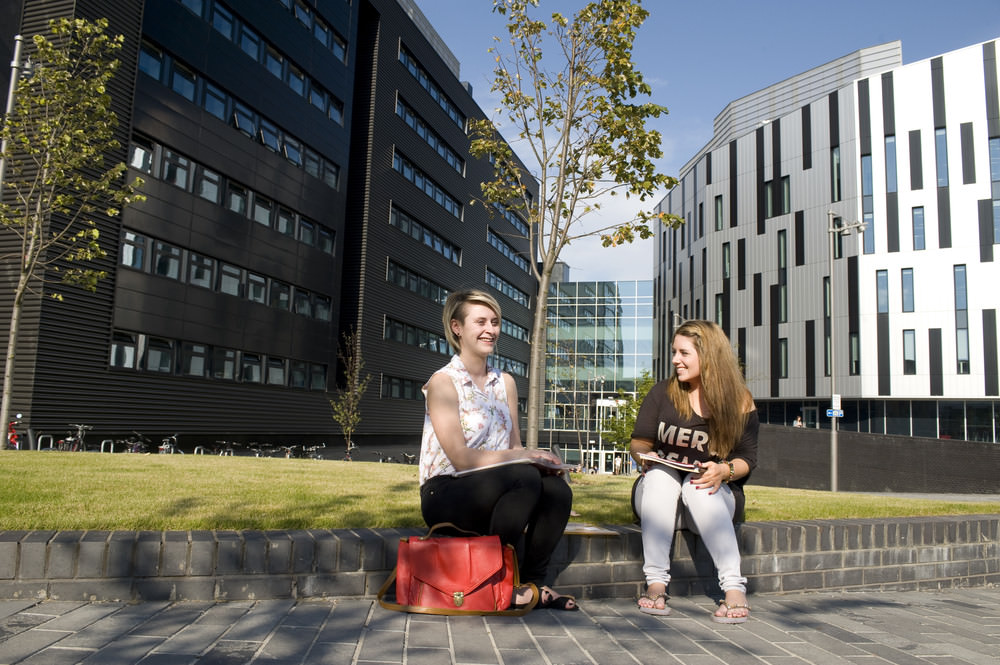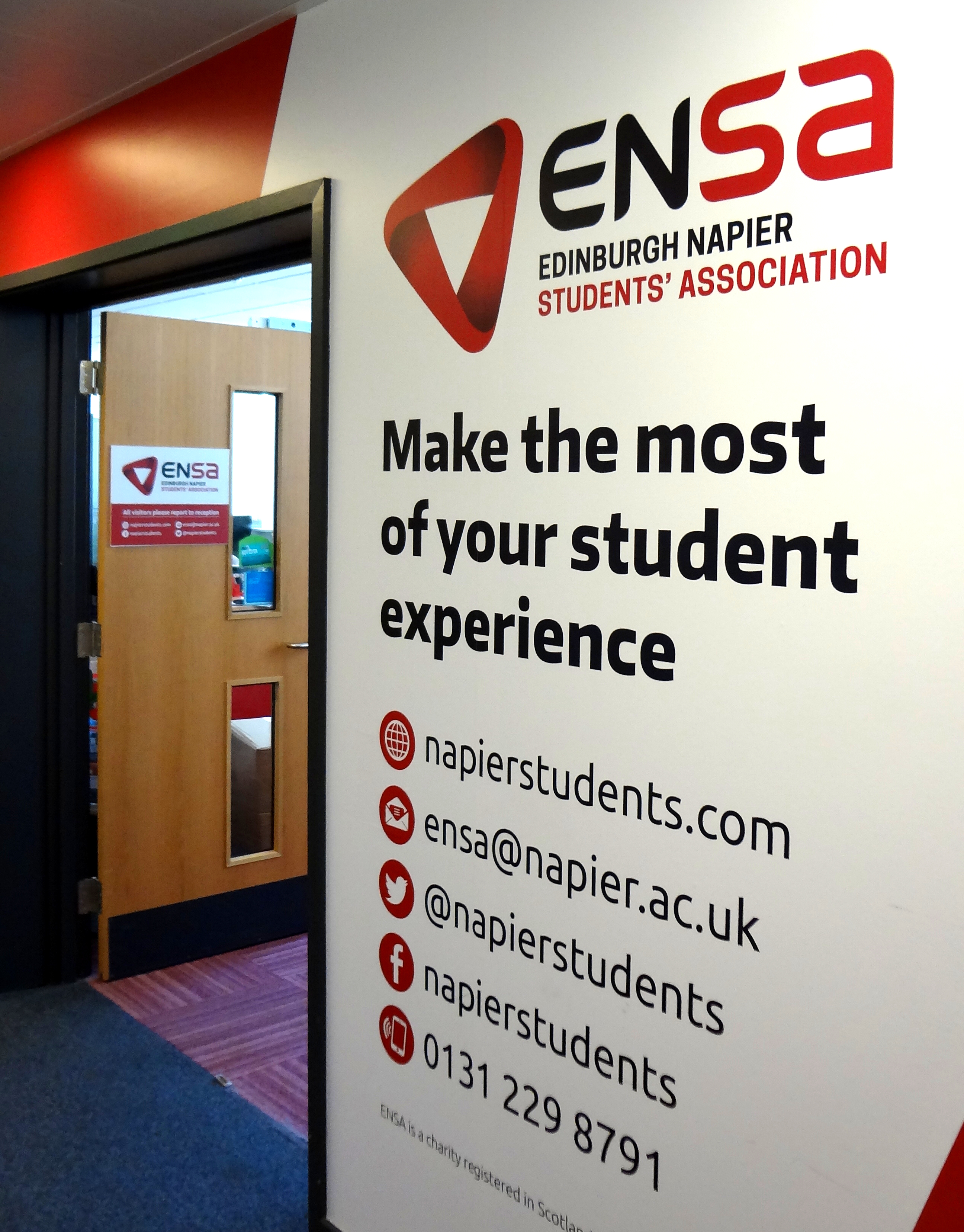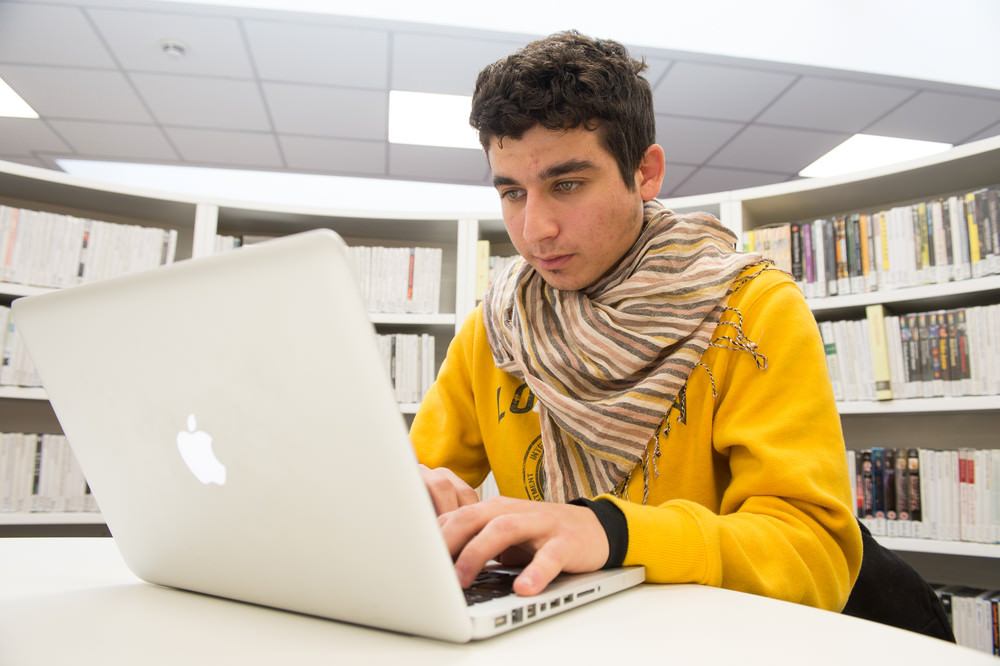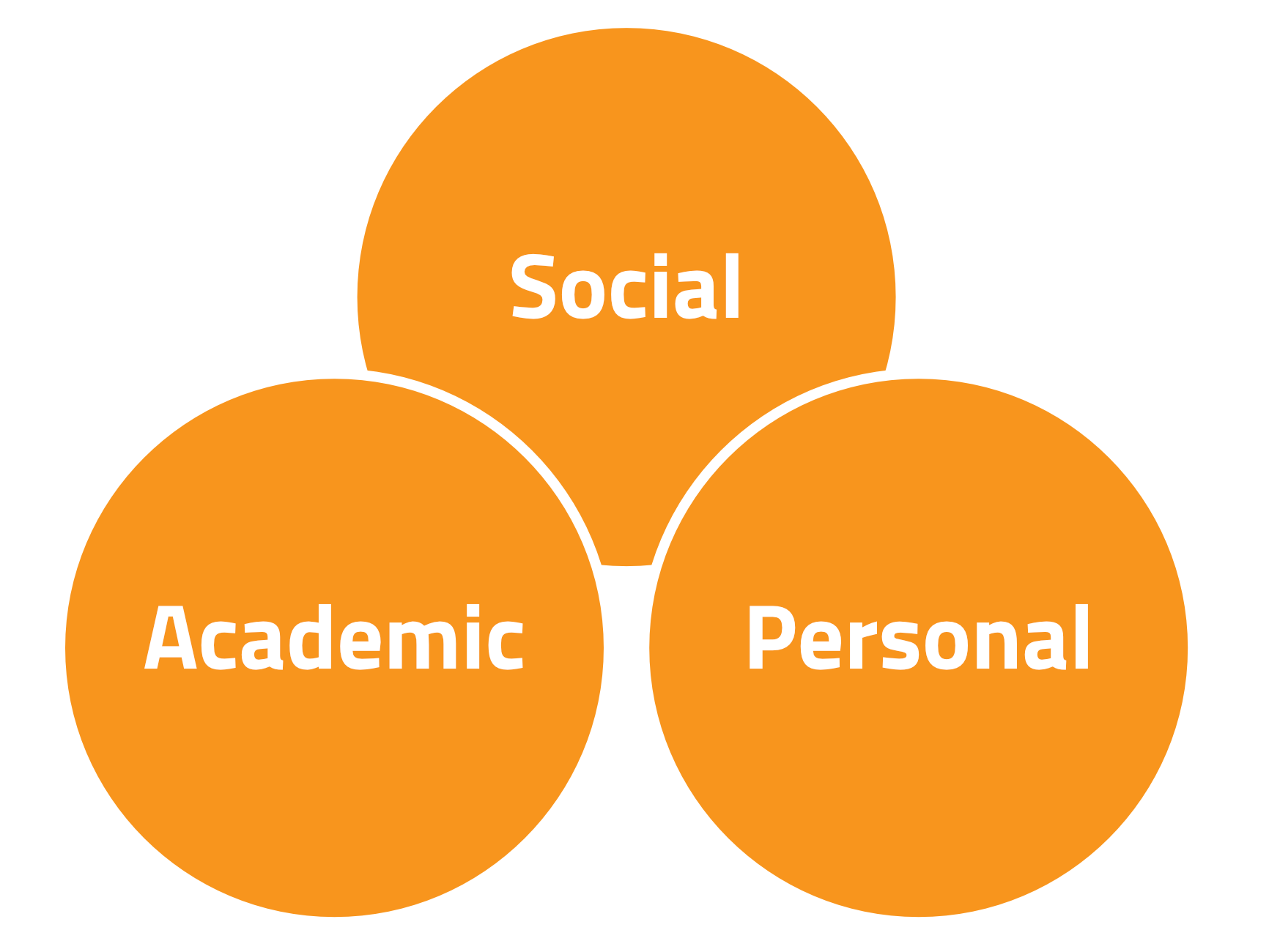What's university like?
So, what’s university really like? Is it different from other types of study, and how will your previous experiences help? Do you know what skills you already have and what other skills you will need? And is there life beyond the books?
In this section we give you an insight into what university study, and university life, is really like.
What has university got to offer?

Coming to university is about getting a qualification, but it has so much more to offer on top. There is a huge range of activities and interests that you can pursue and sample. Want to try a new sport, get together with people of similar interests, volunteer or get involved in the students’ association? It’s all here.
ENSA Sports & ENSA Societies

If you want to participate competitively, to socialise or just get fit, then Edinburgh Napier University offers one of the best environments for doing just that, with more than 20 different clubs available to join.
Information on the Team Napier Sports Clubs is available from www.napierstudents.com
Like us on Facebook for regular news & updates:Team Napier
Follow us on Twitter: @TeamNapier
Team Napier Sports Clubs include:
- American Football
- Archery
- Athletics
- Badminton
- Basketball
- Cheerleading
- Dance
- Football
- Golf
- Jiu Jitsu
- Hockey
- Kayak
- Netball
- Rock Climbing
- Rugby
- Snowsports
- Sailing
- Sub Aqua
- Surf
- Swimming
- Triathlon
- Volleyball
There has always been a diverse student population at Edinburgh Napier with equally diverse interests and hobbies. Societies are where like-minded people share their interests and activities. It’s also often where your closest University friendships are forged.
Information on the Team Napier Societies is available from www.napierstudents.com
Like us on Facebook for regular news & updates:Team Napier
Follow us on Twitter: @TeamNapier
Team Napier Societies Include:
- Airsoft Society
- Anime Society
- Business Society
- Chamber Choir
- Chinese Society
- Christian Union
- Civil Engineering Society
- Drama Society
- EuroTalk Society
- Film
- First Aid Africa Society
- Gender Equality Society
- Greenleaf Vegetarian & Vegan Society
- Law & Mooting Society
- LGBT Society
- Makers Society
- Midwifery Society
- Napier Orchestra
- Napier Pop Choir
- Pole Fitness Society
- Psychology Society
- Techno Society
- Whisky Society

ENSA Volunteering provides opportunities for students to support their personal development and improve their employability while giving back to their communities. ENSA delivers these services through our online system, our VBase hub on campus and our licenced centre for the Duke of Edinburgh’s Awards.
To find out more and browse hundreds of volunteering opportunities, visit www.napierstudents.com/volunteering
Edinburgh Napier Students Association

Make the most of your student experience! From the moment you walk through the door, you’ll become a member of the University’s student association. Edinburgh Napier Students' Association is the independent union for all students studying at Edinburgh Napier University. We are a democratic, student-led charity and provide a range of services for our students including: sports clubs, societies, volunteering, student representation, advice, campaigns and events.
To make sure you don’t miss out on all that is on offer, visit the ENSA website: www.napierstudents.com
Like us on Facebook for regular news & updates: ww.facebook.com/NapierStudents
Follow us on Twitter: @NapierStudents
Student Representation

Edinburgh Napier Students’ Association (ENSA) has a firmly established and responsive system of student representation, operating at a number of levels. Our students have the opportunity to represent their peers at programme level, through the Programme Representative system, at School level through our School Representatives and at strategic level through student membership of University and ENSA committees, including the Student Experience Committee, University Court and ENSA Trustee Board.
Find out more about how you can get involved at: link
What is university study like?

So what’s it really like to study at university? How will it be different from other kinds of study, and what will help you make a success of your university studies?
Independent learning
University is challenging but it’s also exciting - you’ll be expected to really stretch yourself both as a learner and as an individual. You might have a small number of classes, but that doesn’t mean you have lots of free time!
At university you need to be an independent learner – that means you’re in charge of your studies. It’s important to be organised, to plan your studies from the start, and to actively seek out the information you need. That’s not always easy when you don’t know what you need to know! To help get started, make the most of university induction activities and (of course) read your course information carefully. Ask library staff to help you search for information. Discuss techniques with other students. Being independent doesn’t mean being isolated.
A different scale
At university classes can be very large, especially in the first year. There may be as many as 100 students attending the same lecture.
There is less input from teaching staff compared to school or college, and student s have more freedom to manage their own resources for their chosen topic. Academic writing is also more formal and requires critical analysis and evaluation, as well as comprehensive references.
At university you may receive less feedback than in previous studies, although most staff will offer advice when asked. There is also less flexibility in submission dates of your assignments. Most modules combine written assignments with formal end of course exams, and this can be scary at first!
Staying on track
It can be hard to keep your studies on track, particularly if you have other commitments. At university a lot of your assessment is by coursework, (you’ll be told early on what the deadlines are for each assignment). It’s common for several assignments to be due in around the same time, and most require quite a lot of reading, so it’s really important to plan your time and start coursework early. Make sure you organise your files and notes as you go along. And try not to miss lectures!
Make time for your life!
Yes you are at university to study – but it’s also important to get to know new people and build new social and professional networks. University is an amazing opportunity to meet new people, try new things, and just enjoy yourself, as well as to learn about your subject. If you can find a good balance between study and the other important things in your life, you’ll really enjoy your time. Of course you have to work hard on your studies to succeed and get good marks – but take some time out too!
Ask for help when you need it
At the beginning you might feel uncertain about asking questions, perhaps because you don’t know the staff too well, or you’re in a large class. But no one expects you to know everything! Always ask if you feel you need help. If you have any problems you can email the appropriate person. Some lecturing staff also have times when you can drop into their office and ask for advice and you can always contact student support if you feel you need additional help.
Where are you coming from?

For the most part the challenges of university are the same for everyone. But, depending on the route you take to get to university, you might notice some things more than others. Don’t panic! If you have an idea about the challenges then you are more than half way to overcoming them. One of the great things about university is that you get to work and study with people from all sorts of backgrounds, and often from all round the world. You have a particular set of skills and experiences to bring that will be really useful. We’ve started to list a few to give you an idea – but the list could be endless. What would you add?
From School
University is a big step on from school with massive opportunities. It’s also very different. At school you may have known lots of people and had many friends. At university you might not know many people at first and you could find yourself in very big classes. You might be surprised at the mix of ages too. It can be overwhelming at first. Don't worry! To help get you started there are lots of activities for new students, and you'll soon find you make new friends.
Another way university is different from school is that you're in charge of your studies. There is less interaction with staff than at school and more emphasis on independent learning. You really are in control and in the driving seat!
- You are used to studying and exams
- You have used recent technology (including social media)
- You have fresh ideas and a new way of thinking
- You are used to working on group assignments
- You have energy and enthusiasm!
Your Skills
From College
University is different from college in many ways but there are similarities as well. One of the main differences is that there is less interaction with staff and a greater emphasis on independent learning. This might feel a little impersonal at the beginning and it can be quite hard, especially if you are starting university in the second or third year. This is normal! You'll soon meet others with common interests and settle into the new environment.
- You have adapted to a different learning environment already
- You have an idea of what you want to do
- You have worked in groups and on individual assignments
- You are used to having some independence and managing your own studies
- You know that studying is just a part of the experience
Your Skills
As a mature student
It’s a new beginning. University is a fantastic opportunity to explore your chosen area of study, and perhaps begin a new career. It can be a life-changing experience! If you're coming back to uni after some time it can feel quite challenging at first, but there is support available if you need it.
It's likely that you're very motivated to succeed in your chosen area of study and if you've worked for a while, or looked after a family, then you'll probably be well organized. You can use these skills to plan your studies from the very start, but try not to put too much pressure on yourself.
It can feel a bit lonely at the beginning, but there are lots of mature students at Edinburgh Napier. You'll soon settle in and the life experience you bring with you will help you to achieve. When you enjoy what you're studying, it makes all the difference.
- You can prioritise multiple tasks and demands
- You can negotiate and find solutions
- You can schedule your time and work to deadlines
- You have worked as a team to deliver results
- You can relate theories to experience
Your Skills
What do I bring?
Sometimes we forget just how amazing we are and we underestimate our skills and experiences. Take a moment and note down the skills and qualities you bring. If you’re getting stuck why not draft in a friend or relative to help tell you how incredible you are. And if ever you start to doubt yourself, refer back to this list!
What’s your university plan?

We know that coming to university offers a head spinning range of challenges and opportunities. So how do you make the most of this? And how do you keep on top of it all? Well, as any good high wire act will tell you – it’s all about balance. Yes, the most important thing about university is passing your course and gaining your qualification, but it’s not the only thing. If you keep a good balance then you will perform better on the academic side. But what do we need to balance? Your university experience can be divided into 3 areas, academic achievement, social activity and personal growth.
Academic achievement
This one’s fairly straightforward. Most students are at university to get a qualification. This gives you a massive sense of personal achievement and it paves the way for your future career.
Social activity
Making new friends and sharing common interests. Being active or just chilling out. Hitting the club or getting together for a film. We all relax, unwind and socialise in different ways. Most people will tell you they make friends for life at uni. It helps to share the stress and pressure of university so that you realise you’re not alone! It’s also just good to unwind and have a laugh.
Personal growth
You may never have this many opportunities laid out in front of you. They are there for the taking. Want to try a new sport or develop a skill? Want to act or learn an instrument? Want to volunteer and do something totally different? Here’s your chance.
There’s a huge amount of overlap between these areas, and it might be that you are doing something, for example sports coaching, that hits all 3. That’s great. We are just looking at it like this to make sure none of these areas are being ignored.
Now you can do anything, but you can’t do everything. So how do you choose? Well, it’s time to put a bit of thought into it and create a university plan.
